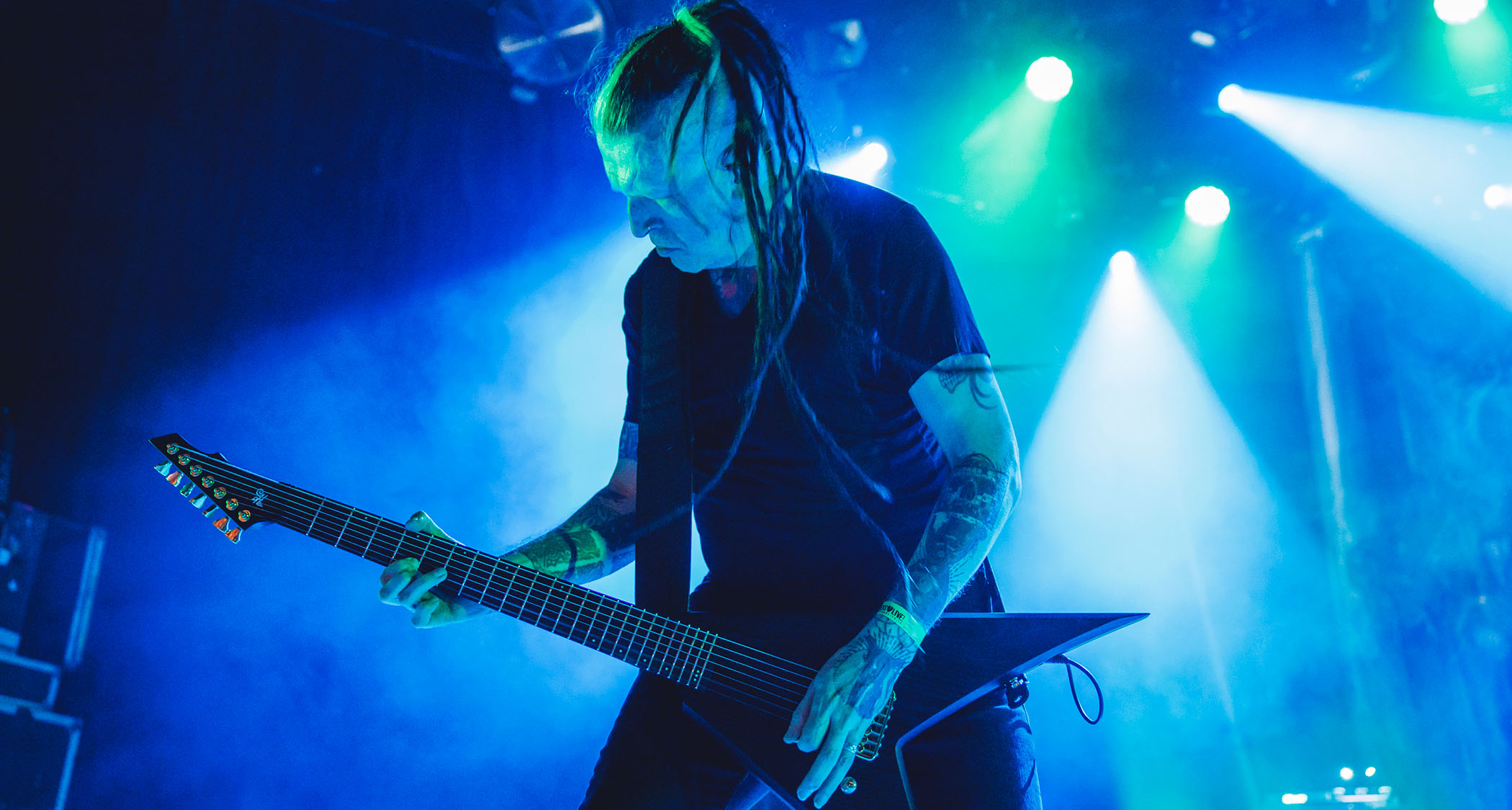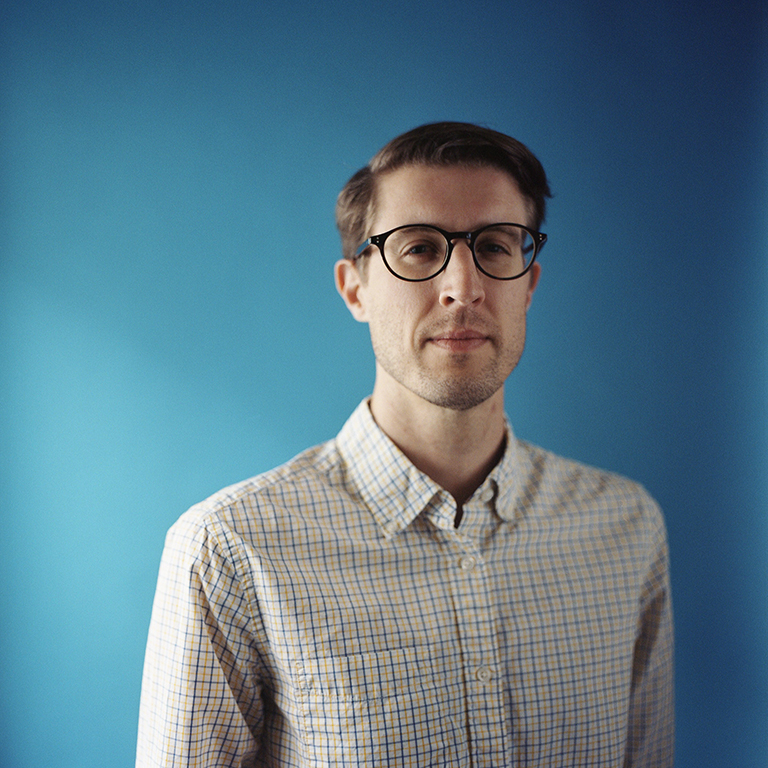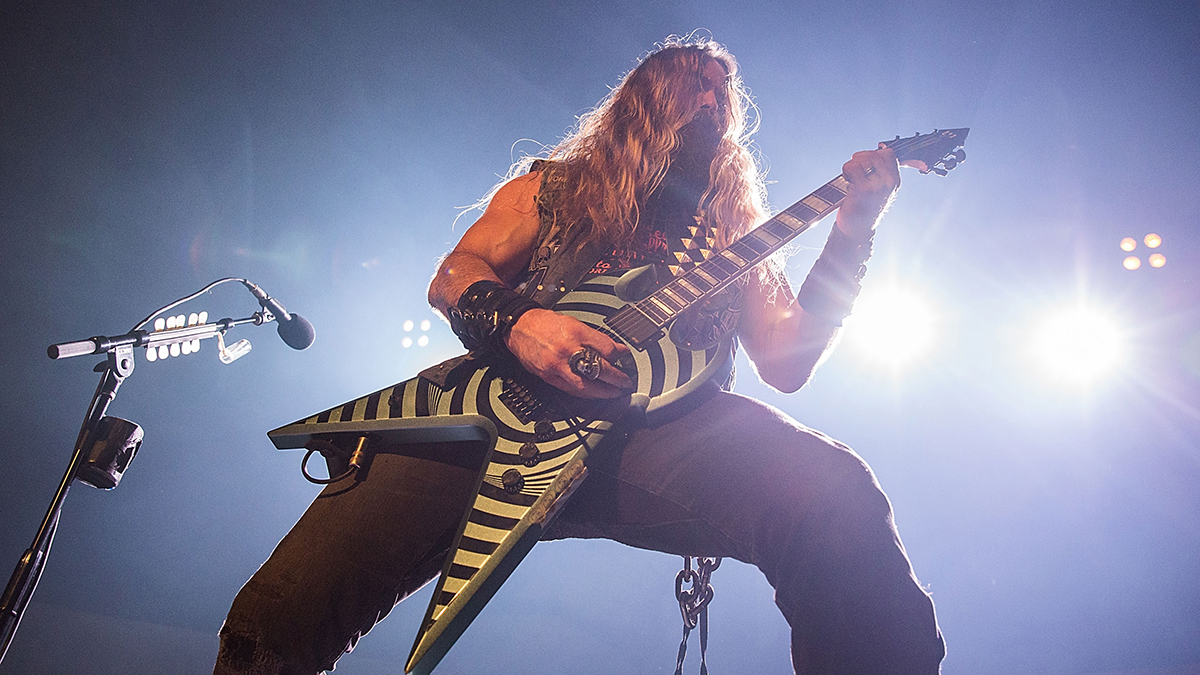“I thought, ‘I wonder if I can get away with putting sleigh bells on a doom-metal song?’” How Paradise Lost’s Greg Mackintosh is rewriting the gothic metal rulebook
Ascension is another work of magisterial gothic doom from the English metal stalwarts, who are still chasing new ways to articulate melancholy in the infinite sadness

All the latest guitar news, interviews, lessons, reviews, deals and more, direct to your inbox!
You are now subscribed
Your newsletter sign-up was successful
If Paradise Lost guitarist Gregor Mackintosh gets his wish, music fans might be adding the gloom-driven sounds of his band’s Ascension LP to their Christmas playlists this year, perhaps alongside Yuletide staples like Michael Bublé and Bing Crosby.
The throughline might not be readily apparent between those crooners and the U.K. metal veterans; few holly-jolly moments exist across the latter’s new album, where vocalist Nick Holmes uses death-growls and a gothic baritone to explore themes of war and the interminable struggle of life.
Nevertheless, Mackintosh suggests the melancholic melody lines he brings to Ascension pieces like Salvation and Serpent on the Cross chime through the speakers like a peal of church bells on a crisp December morning, which he argues makes the quintet’s 17th full-length “a Christmassy, winter-type thing.”
“It all started with the song Salvation, which is a full-on Christmas song to me – but, you know, like an alternative, miserable Christmas,” he says through a laugh, noting how he was inspired to up the seasonal ante, production-wise, by juxtaposing jingling percussion against his sorrowful riffage.
“When I did that song I thought, ‘I wonder if I can get away with putting sleigh bells on a doom-metal song?’ I put them all through the chorus in the demos and no one batted an eyelid. So, I thought, ‘Right… I’m going to use it on two or three more songs!’”
Despite Ascension’s inherently chilly aesthetic, Mackintosh is explaining all this to Guitar World on an early summer afternoon from his home in Yorkshire, England, during a brief layover from Paradise Lost’s European run with King Diamond. He’s hoping to get in a bit of gardening before hopping back on a plane to rejoin the tour and step into his act’s long-awaited next era.
As it stands, Ascension is the group’s first set of original songs since 2020’s Obsidian, marking the longest gap between Paradise Lost albums in the act’s nearly 40-year career. Obsidian dropped during the height of Covid, which obviously brought on various logistical challenges when it came to promoting the release.
All the latest guitar news, interviews, lessons, reviews, deals and more, direct to your inbox!
By the time the act began full-scale touring again in 2022, they were broaching the 30th anniversary of their gothic epic, Icon, so they decided to celebrate that by re-recording the collection in full, partly to regain the rights to their music (per Mackintosh, the original album is owned by Sony).
During the Icon 30 sessions, Paradise Lost dug through their old gear haul to track down the Marshall JCM800 head they’d used all over their earliest LPs, including Icon. Mackintosh and co-guitarist Aaron Aedy loved its vintage crunch so much that it ultimately became the principal rhythm tone across Ascension, though Aedy’s Orange Rockerverb MKIII 50 is in the mix as well.
When it came to guitars, both Paradise Lost players went modern with their setup. Mackintosh has been sponsored by Hapas for a few years, so he hoisted a few different custom shop models loaded up with signature pickups he’d developed with the Berlin-based company. Those pickups were likewise wired into one of Aedy’s ESPs.
Whether exploring terse staccato tension or an aching, valley-wide vibrato, Mackintosh dialed into Ascension’s pervasive lead tone using EQ pedals at both ends of his chain, and a pair of Ibanez Weeping Demons fine-tuned and filtered to varying degrees.
When I was recording, my initial idea was to do very different lead sounds on each song. I tried all that out – various things, like heavy choruses – but it just wasn’t hitting the sweet spots
“When I was recording, my initial idea was to do very different lead sounds on each song. I tried all that out – various things, like heavy choruses – but it just wasn’t hitting the sweet spots for me. It’s all about the sweet spot for me, you know – when you hit a certain note and it sings,” he says, though the guitarist reiterates that his wah pedals were technically angled differently between takes. “I’m not doing full-on wah-wah stuff, but I’m shifting it minutely.”
As for the general flow of Ascension, Paradise Lost’s latest album kicks into a wide breadth of heaviness – from that gloomy Sunday solemnity toward classically galloping metal, gray-skies folk and doom-crunched romanticism. During the writing phase, the band felt that the ominously anthemic wallop of lead single Silence Like the Grave was militaristic enough to “sound like a war.”
While Ascension covers a lot of ground, variety’s been a part of Paradise Lost’s DNA ever since Mackintosh and Aedy started riffing together in the ’80s.
“When we came together, we had a few jams and he was playing this choppy, Metallica-type stuff, which wasn’t really my thing at the time. I was doing all this goth-y guitar work over the top of it,” Mackintosh says of the dynamic.
“It blended together as we went along, and when Paradise Lost became a thing in ’88, we realized we’d fallen into our roles in the band. And it’s worked constantly like that. It’s always felt comfortable.”
Notably, the time between Obsidian and Ascension also found Mackintosh and vocalist Holmes briefly side-journeying themselves through a more profoundly synth-driven dark-pop full-length as Host (usually stylized as HOST) – a sound reflecting Paradise Lost’s 1999 album of the same name. Though that was fun and fulfilling, Mackintosh is glad to be firmly back in the zone with longtime metal partner Aedy on Ascension.
“When I was doing the Host stuff, I was really buried in it and loving that I was doing it, because I hadn’t done anything like that for a long time. But then when we came back to doing Paradise Lost, it made me feel rejuvenated [to play] more metallic guitar work, because we’d had a good year or two off from doing that kind of thing. It gave me extra vigor.”
- Ascension is out now via Nuclear Blast.
- This article first appeared in Guitar World. Subscribe and save.
Gregory Adams is a Vancouver-based arts reporter. From metal legends to emerging pop icons to the best of the basement circuit, he’s interviewed musicians across countless genres for nearly two decades, most recently with Guitar World, Bass Player, Revolver, and more – as well as through his independent newsletter, Gut Feeling. This all still blows his mind. He’s a guitar player, generally bouncing hardcore riffs off his ’52 Tele reissue and a dinged-up SG.
You must confirm your public display name before commenting
Please logout and then login again, you will then be prompted to enter your display name.





